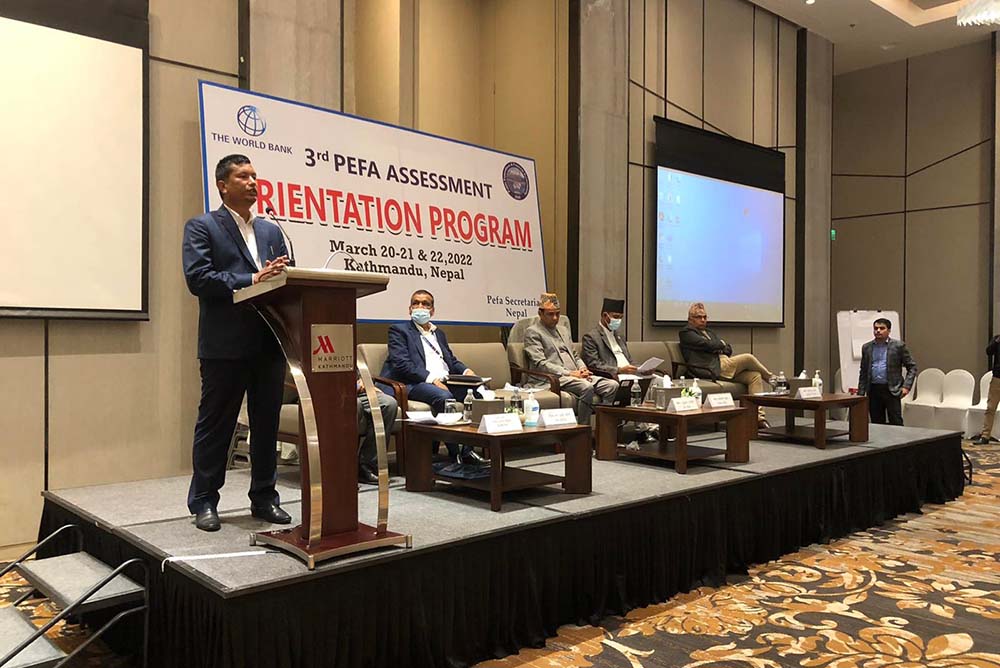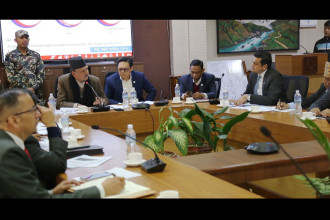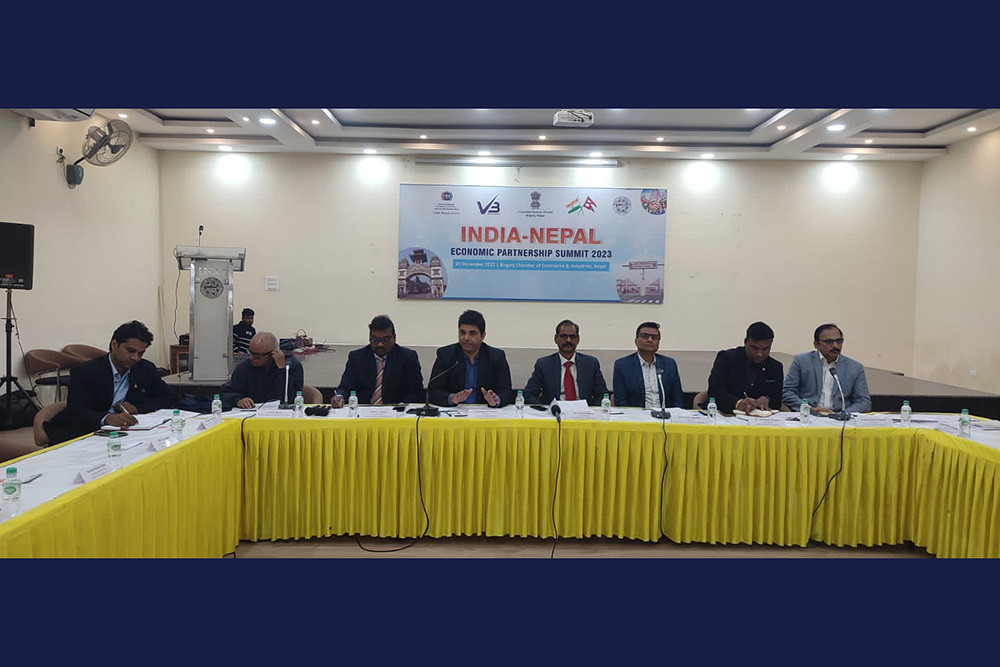
KATHMANDU: The third Public Expenditure and Financial Accountability (PEFA) assessment has been started in Nepal.
It is stated that the third assessment has been carried out after giving training to 61 persons in 11 groups under the leadership of the joint secretary in collaboration with PEFA Secretariat and World Bank.
The programme is being implemented with the aim of completing the third assessment within 2022, according to the PEFA Secretariat.
Finance Secretary Madhu Kumar Marasini said the PEFA assessment would help improve and maintain financial discipline.
PEFA assessment of the federation as well as the province and local bodies will be carried out in a phased manner under the third phase evaluation.
Secretary Marasini said that the sexual and environmental aspects should also be evaluated during the third PEFA assessment of federation. He asserted, "As the financial procedures and financial accountability act and regulations have clarified the provisions of accountability of even ministers, internal control and internal audit, the evaluation will be simple." However, he said the huge demand for money transfer posed a challenge to financial discipline. "With capital spending averaging 20%, there is an additional demand of Rs 368 billion," Marasini said and added such a transfer of money could lower the grade of the credibility of the budget in the PEFA assessment.
Financial Comptroller General, Suman Raj Aryal, said that the PEFA assessment will help solve long-term problems in the face of external influences on the economy. He said PEFA will be taken to the local level stating that it will be appropriate to emphasize improvements in our own style.
Likewise, Revenue Secretary Krishna Hari Pushkar said the government is going to measure the improvement by self-evaluating PEFA.
The coordinator of PEFA Secretariat, Than Prasad Pangyani, has urged all the evaluators to work hard for the PEFA assessment as a national campaign and make it an international standard.
Member Secretary of PEFA Secretariat, Gorakh Bahadur Shahi, informed about the support of PEFA evaluation in Nepal. He noted that since 2005, external debt has been a major factor in GDP and that the World Bank and the International Monetary Fund (IMF) have adopted two options for reforming their foreign exchange reserves to repay interest on loans. One of the options was to mobilise foreign aid on the initiative of a poor country with high debt, following the strict conditions of a development partner, and the other was to mobilise foreign aid in its own priority by improving the public finance management system, process and structure.
It has been mentioned that due to continuous improvement, 61% of indicators improved in the second PEFA assessment and so far, budget assistance has been received in such a way that foreign aid has become a priority for Nepal. Evidence-based PEFA will be evaluated following the PEFA Framework 2016 and other published procedures implemented by the PEFA Secretariat in Washington DC, USA. According to the framework, PEFA assessment of seven pillars, 31 indicators and 94 dimensions are evaluated in ten states of four phases.
PEFA Secretariat has informed that it has prepared a strategy for reform in public financial management based on the report, and adopted a system of institutionalising reform in collaboration with stakeholders.
PEFA was established as a means to reduce the duplication and costs of multiple assessments and to facilitate dialogue between the government and others about how to improve the effectiveness of fiscal policies. PEFA was also aimed at improving the results of development cooperation as part of the global aid effectiveness agenda. It provided support for the Strengthening Approach established in 2005 through the Paris Declaration, then further developed in the Accra Agenda for Action in 2008, and the Busan Partnership for Effective Development Cooperation in 2011.
As many as 155 countries have carried out PEFA assessment 729 times, so far. The third assessment is targeted to be completed within this year.
READ ALSO:
Published Date: March 21, 2022, 12:00 am
Post Comment
E-Magazine

Click Here To Read Full Issue
RELATED B360 National




